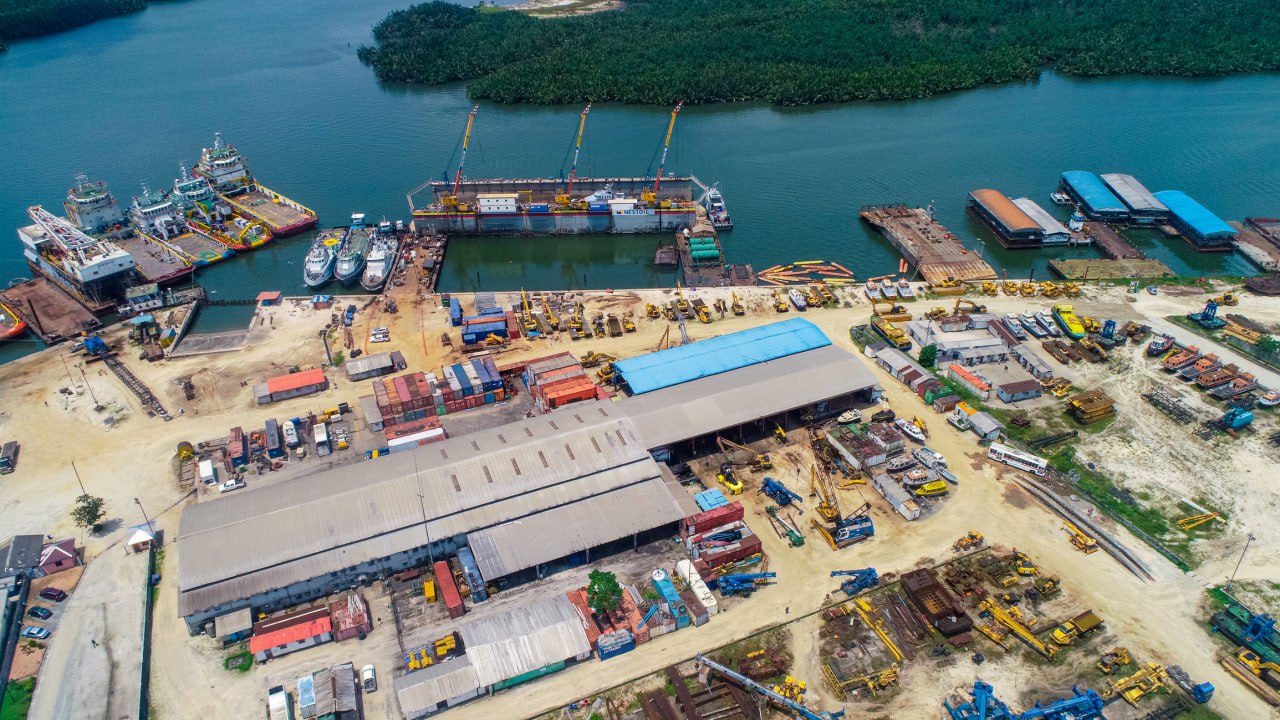Nigeria’s maritime industry has the potential to contribute over $44 billion annually to the nation’s Gross Domestic Product (GDP), according to recent projections shared by industry leaders. The announcement came during the 13th Annual Conference of the Nigerian Institution of Marine Engineers and Naval Architects (NIMENA) held in Port Harcourt, where experts highlighted the pivotal role of the sector in driving economic growth, global trade, and national development.
Speaking at the conference, NIMENA Chairman Daniel Tamunodukobipi underscored the vast opportunities within Nigeria’s maritime industry, emphasizing its capacity to transform the country’s economic landscape if properly harnessed. “Recent statistics have revealed that the Nigerian maritime industry can contribute more than $44 billion annually to the GDP,” Tamunodukobipi said, according to local media reports.
The conference also stressed the importance of strong regulatory frameworks to unlock the full potential of Nigeria’s maritime sector. George Okoroma, Chairman of the South-South Steering Committee, noted that national maritime regulations are crucial in driving progress within the sector. “Strong national maritime regulations play a crucial role in unlocking the country’s potential in the maritime industry, which can promote global trade, economic development, and international cooperation,” Okoroma stated.
Nigeria’s maritime sector is strategically positioned to facilitate international trade and serve as a hub for regional and global shipping activities. With its expansive coastline, major ports, and increasing trade volumes, the country has the foundational assets needed to emerge as a leading maritime economy in Africa. However, realizing this potential requires improved policies, targeted investments, and enhanced collaboration between public and private stakeholders.
A key theme at the conference was the need to strengthen local participation in the maritime sector through the implementation of the Cabotage Act. Jibril Abba, Executive Director of Maritime Labor and Cabotage Services, emphasized that the act is essential to prevent foreign dominance and promote indigenous capacity building within the industry.
“The act is designed to prevent foreign domination of our trade and encourage indigenous capacity building,” Abba said. Enacted in 2003, the Cabotage Act aims to promote local content by reserving coastal and inland shipping activities for Nigerian-owned and operated vessels. While the legislation has made progress in boosting local participation, Abba highlighted the need for stronger enforcement, improved safety standards, and capacity development to achieve its goals.
Nigeria’s maritime industry, like many sectors, has faced challenges, including the influx of foreign shipping companies, inadequate infrastructure, and skill gaps among local professionals. Abba stressed that addressing these issues will not only strengthen indigenous participation but also ensure shared prosperity within the industry.
The conference also brought attention to the importance of safety standards and capacity building as critical components for the sector’s growth. Industry experts called for investments in training programs, technology adoption, and infrastructure to enhance operational efficiency and safety within Nigeria’s waters.
Improved safety protocols are particularly vital to ensure the security of maritime assets and personnel, given the persistent challenges of piracy and maritime insecurity in the Gulf of Guinea. As one of the most critical regions for global trade, addressing these security concerns is essential to attract foreign investment and boost confidence in Nigeria’s maritime sector.
Capacity building, through education and skills development, was another focal point of the discussions. Developing a highly skilled workforce will be instrumental in achieving the sector’s long-term objectives and reducing reliance on foreign expertise.
The projected $44 billion contribution highlights the maritime industry’s potential as a key driver of economic diversification in Nigeria. With the country seeking to reduce its dependence on oil revenues, the maritime sector offers significant opportunities for growth, job creation, and revenue generation.
Analysts note that Nigeria’s strategic location and maritime assets position it to play a leading role in global shipping and logistics. By fostering local participation, improving infrastructure, and enhancing regulatory frameworks, the country can transform its maritime sector into a cornerstone of economic development.














Leave a comment